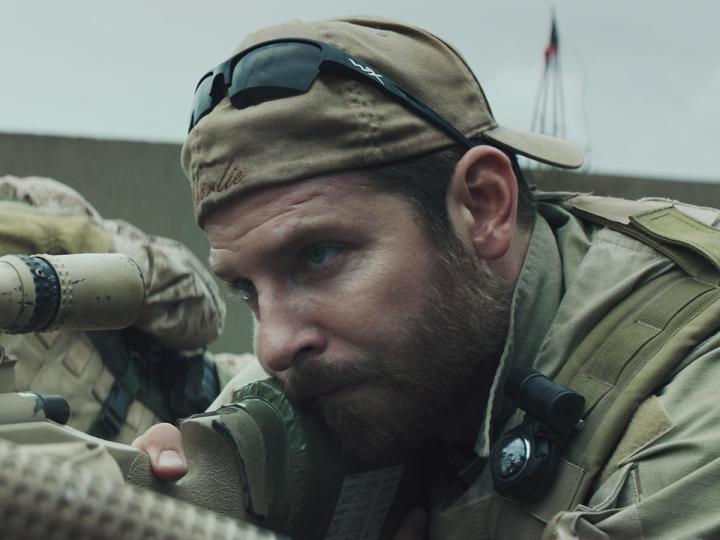
Those are the kinds of numbers usually reserved for summer superhero blockbusters. Audiences were no doubt encouraged by the recent Oscar nominee announcements, of which American Sniper garnered six, including Best Picture and Best Actor for Cooper.
The film tells the true story of Kyle, dubbed by the U.S. military as the most lethal sniper in American history. He earned the nickname “Legend” for racking up 160 confirmed kills (though he later claimed it was 255) over four tours of duty in Iraq.
The film portrays both Kyle’s time in the field and his subsequent civilian life with his wife (Sienna Miller, Foxcatcher) and two children. Kyle was killed in 2013 by a PTSD-suffering Marine at a Texas shooting range.
Vocal support and dissent has come from both sides of the aisle about the film’s alleged political leanings, although the debate has of course only raised the film’s profile in public discourse, bolstering its box office draw. Cooper has, for his part, emphasized the personal narrative over the political.
“For me, and for Clint, this movie was always a character study about what the plight is for a soldier,” said Cooper in an interview with The Daily Beast.
“The guy that I got to know, through all the source material that I read and watched, and home videos—hours and hours—I never saw anything like that. But I can’t control how people are gonna use this movie as a tool, or what they pick and choose whatever they want. But it would be short-changing, I think. If it’s not this movie, I hope to god another movie will come out where it will shed light on the fact of what servicemen and women have to go through, and that we need to pay attention to our vets. It doesn’t go any farther than that. It’s not a political discussion about war, even…It’s a discussion about the reality. And the reality is that people are coming home, and we have to take care of them.”


